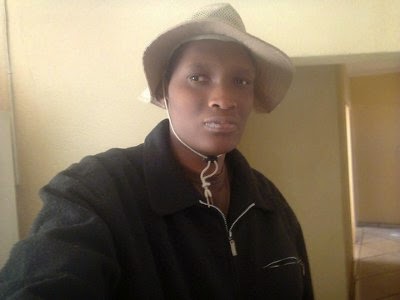
The month of June is celebrated in South Africa as youth month because of the 16th of June 1976, when the youth of Soweto went on the streets protesting against a policy which the Apartheid government had introduced: Afrikaans, the language of the white oppressor, would become the medium of instruction in all schools. The youth mobilized to publically protest against this and tried to hold a meeting in Orlando Stadium. On their way to the stadium, the young people met tanks, army and police who shot them, many lost their lives. This event started a movement in which many young people went into hiding, they joined the ANC and other critical voices to fight the Apartheid government.
On the occasion of youth month Christel Hermann interviews Thato Mokgothu. He ist 29 years old, peer educator in Tsibogang and lives in Mafikeng. He tells us about his life and the situation of young people in South Africa.
Last week we celebrated 16 June, the uprising of the youth in Soweto. What is the significance of this day for you?
June 16 is important for me because it was the first time when Blacks expressed themselves against the Apartheid government. They did that in a violent way which I do not like but what I like is that they had a spirit of fighting together for their rights.
What are the most burning issues of young people today after 29 years of democracy in South Africa?
Unemployment and drug abuse are most burning issues today. It goes like a vicious cycle: young people are frustrated because they have little to hope for when it comes to future employment and they start using drug (alcohol and later on harder drugs). This leads to a lack of self control. Teenage pregnancies follow or they start stealing to get the drugs. This is also one of the topics we tackle in our Tshepanang lessons.
When did you join Tshepanang/Tsibogang and what motivated you to become a peer educator?
I joined Tshepanang in 2010 after I had done a course with Life Line and was employed as a counsellor. I was attracted to Tshepanang because I felt it to be a challenge for me to teach younger people at school. I had the vision that through teaching I could reach the community
What are the best, what are the worst moments of a peer educator?
When I was 15, I had a brain tumour which was operated. After that I had to learn speaking again and until now it is a problem. Sometimes I am stammering. So this is a problem when teaching learners at school. In the beginning they were laughing about me. But after I have told them my story, they respect me and they even come to me for counselling and advice. I have realized that there is a great need for counselling at schools. So many children have serious problems and they would not go to teachers – we as peer educators are approached. For me that is a great honour and challenge to be open to them and help them.

